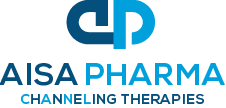About AISA-021
 Aisa Pharma’s AISA-021 is a repurposed oral pill being developed for the treatment of Secondary Raynaud’s, primarily in patients with Scleroderma, containing Cilnidipine, a new 4th generation calcium channel blocker that has never been approved in the United States or Europe.
Aisa Pharma’s AISA-021 is a repurposed oral pill being developed for the treatment of Secondary Raynaud’s, primarily in patients with Scleroderma, containing Cilnidipine, a new 4th generation calcium channel blocker that has never been approved in the United States or Europe.
Cilnidipine is approved for treating hypertension in several Asian countries but has never been studied or developed to treat Systemic Sclerosis or Raynaud’s previously. Cilnidipine is better tolerated and safer in its history of treating hypertension than the calcium channel blockers that are used off-label to treat Raynaud’s. Its safety record is well known in the Asian population with literally billions of doses in treating high blood pressure. The medical need to develop a treatment for Raynaud’s is clear because Raynaud’s has a severe impact on the quality of life of patients who develop the condition and there are no approved medical treatments. Raynaud’s in its various forms affects approximately 6% of the world’s population. Excitingly, cilnidipine has properties that distinguish it biologically from currently used calcium channel blockers and imply that it may be a better drug to treat Systemic Sclerosis and Raynaud’s than many other drugs.
AISA-021 Mechanism of Action
AISA-021 is a L and N selective calcium channel blocker, inducing vasodilating and venodilating effects and decreasing blood pressure in hypertensive patients, but not in normotensive individuals. US-approved CCBs primarily target L-channel receptors, but AISA-021 has >50~500 X more activity at the N channel than these agents. This is key to its unique profile and benefits as the N channel is located throughout the body in the spinal cord, the kidney, the heart, on veins and on the endothelium (the inside of arteries). Various studies have demonstrated that in addition to its blood pressure lowering effect, cilnidipine has beneficial effects on kidney function, atherosclerosis, cardiac function, and nervous system (autonomic or non-voluntary) functioning. All of these body systems are adversely affected in patients with scleroderma.
Tadalafil works by inhibiting an enzyme, called PDE-V, that breaks down a chemical called cyclic GMP in the body, thus increasing it levels. The enzyme is located in various body locations including the vasculature and on platelets and by blocking it and raising cGMP levels, blood flow is increased by increasing another chemical called nitric oxide which results in dilation of arteries. Although PDE-V inhibitors are used principally for the treatment of erectile dysfunction, pulmonary hypertension and for benign prostatic hypertrophy, they are used as second line treatment for scleroderma and Raynaud’s.
In combining the two agents, AISA-021 may demonstrate the beneficial effects of both. A previous study combining less effective and less well-tolerated calcium channel blockers with tadalafil showed a significant beneficial effect on Raynaud’s and skin manifestations in scleroderma patients.
Orphan Drug Designation
The US FDA has designated AISA-021 as an orphan drug for the treatment of systemic sclerosis(SSc) . This means that the FDA considers systemic sclerosis to be an orphan disease (affecting <200,000 people in the United States) and that they have reviewed the evidence of efficacy and safety for AISA-021 in treating systemic sclerosis ( this can be in pre-clinical or clinical studies but in the case of AISA-021 was based on the preliminary data generated in the Phase 2 RECONNOITER Study in SSc patients as well as studies of the drug in animal and clinical settings demonstrating beneficial effects of relevance to SSc disease pathology and progression) and concluded that it is medically plausible that AISA-021 could treat SSc.
The benefits of Orphan Designation of AISA-021 for the company are the granting of increased market exclusivity in the US and territories ( 7 vs the 5 year standard that accompanies new drug approvals), priority review of the NDA and regulatory assistance from the FDA, tax credits, potential for breakthrough designation, and the waiving of PDUFA fee application for the NDA when submitted.
Aisa will also apply for Orphan Drug Designation for AISA-021 in the EU, which provides similar benefits except that the marketing exclusivity period is extended to 10 years in EU countries.
Pediatric Raynaud’s Study Plan
Aisa is currently planning on beginning a study in pediatric patients with Raynaud’s. Although Raynaud’s symptoms are certainly less prevalent in children than in adults, as many as 30% of pediatric patients presenting with Raynaud’s symptoms may have secondary Raynaud’s and an underlying connective tissue disease and recommendations are that these children are followed carefully. Just like in adults, there are no good medical treatments for children with Raynaud’s and poor tolerance of vasodilator drugs and minimal efficacy of these agents highlights the need for an improved therapy. Aisa is planning on conducting an open label pediatric trial to begin in 2025 to discover whether AISA-021 might produce efficacy and safety for the treatment of Raynaud’s in children that mirrors the results witnessed to date in the Phase 2 RECONNOITER trial in secondary Raynaud’s patients in Australia.
